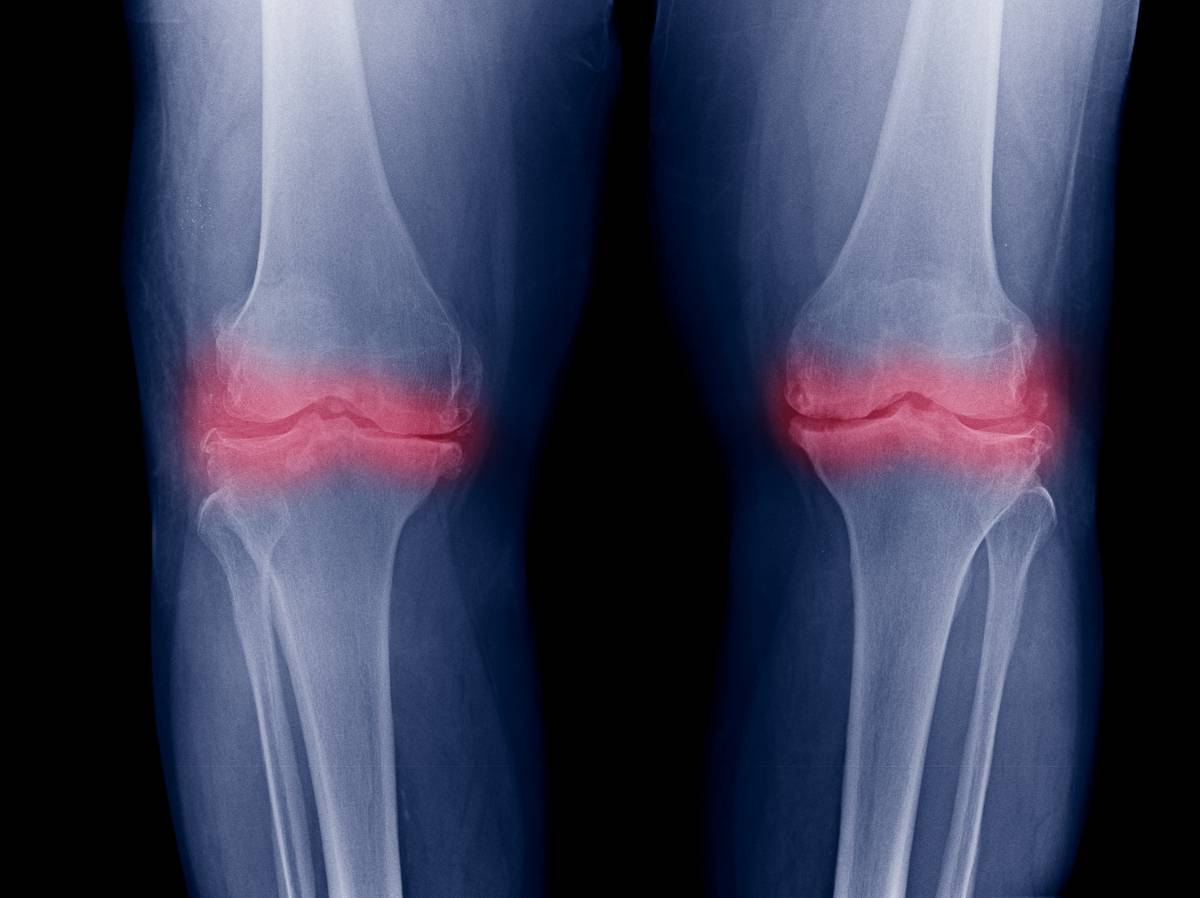'Completely new' behavioural intervention for physios treating people with knee osteoarthritis
Physiotherapists have helped to develop a ‘completely new behavioural intervention’ for treating people with knee osteoarthritis (OA), according to a paper written by team of researchers based in England.
The ‘cognitive muscular therapy’ intervention – which brings together ideas from the disparate fields of pain science, biomechanics and health psychology – can be delivered by physiotherapists, the team notes.

The researchers
The approach is outlined in an open-access paper, titled A new integrated behavioural intervention for knee osteoarthritis: development and pilot study, that was published earlier this week by the journal BMC Musculoskeletal Disorders.
Lead author Steve Preece is research director at the University of Salford’s centre for health sciences research, where his co-authors Anita E Williams, Richard K Jones and Chelsea Starbuck also work. A fourth co-author, Nathan Brookes, is based at the centre but also works at Salford Royal NHS Trust’s physiotherapy department.
The other two authors are Anthony Jones, from the University of Manchester’s human pain research group, and Nicola E Walsh, from the University of the West of England’s faculty of health and applied sciences.
'Urgent need' for new approaches
We aimed to create a new behavioural intervention, which integrated psychologically informed practice with biofeedback training to reduce muscle overactivity, and which was suitable for delivery by a physiotherapist [Dr Preece et al.]
Treatment sessions delivered by a physiotherapist focused on changing muscle patterns and teaching patients how their beliefs and behaviours can influence how pain is experienced. The paper says there is an ‘urgent need’ to explore conservative ways to manage knee OA, given that obesity levels (a known risk factor) are rising and that one person in 10 aged over 55 years will be diagnosed with the problem.
The team aimed to make the approach consistent with the capability, opportunity and motivation (COM-B) model, which they point out has been recommended for promoting behavioural changes at an individual-level.
In a section on the study’s background, exercise-based approaches are said to have been a ‘cornerstone’ in the management of knee OA by physiotherapists for many years. ‘However, clinical effects are considered small to modest and the need for continued adherence identified as a barrier to clinical efficacy,' the authors note.
‘While exercise-based approaches focus on muscle strengthening, biomechanical research has identified that people with knee osteoarthritis over activate their muscles during functional tasks.
‘Therefore, we aimed to create a new behavioural intervention, which integrated psychologically informed practice with biofeedback training to reduce muscle overactivity, and which was suitable for delivery by a physiotherapist.'
Patient perceptions: creating a ‘new normal’
Patient feedback, captured during the last in a series of co-design workshops, was ‘universally positive’, the paper states. ‘Patients reported that the intervention allowed them to understand and challenge the way they move and react to pain. They also described the process as allowing them to “create a new normal”, to be “in control of their own treatment” and to feel like they were addressing the “cause not the symptoms”.
‘Patients also commented positively on the “holistic approach” and explained that this put the “patient at the centre rather than the health professional or the treatment”.
One participant described the intervention as ‘genuinely life changing’, saying the psychological and physical impacts had resulted in her feeling ‘more energised’.
Three patients from the final 11 who received the fully-formed intervention were interviewed and their comments were subjected to a thematic analysis.
Patients said that:
- the intervention ‘changed mind and body’, giving a new level of conscious awareness of their body movements
- ‘understanding is key’: patients said they found using animated videos (tailored to meet their needs by the physiotherapist) and receiving electromyographic biofeedback was ‘invaluable’. ‘When combined with individual discussion, this enabled patients to “reset expectations” about their knee pain and give them a new feeling of “responsibility” for their condition,' the paper notes
- ‘keep going with the new me’ – a comment showing the importance of continued awareness in daily life
- the physiotherapist’s 'empathic and positive attitude' was said to be a crucial factor in changing patients’ beliefs about pain and guiding them through the learning process
'Positive' conclusion comes with caveats
Though the paper’s conclusion states that the patients' feedback was ‘incredibly positive’, Dr Preece and his colleagues voice some caveats. For example, extending the number of physiotherapy sessions from a standard number of six might yield wider benefits, they add.
‘However, while encouraging, our preliminary clinical data does not constitute proof of effectiveness. Therefore, larger trials are now required to understand whether this intervention could bring about long-term improvements in the pain associated with knee OA when delivered either within the UK NHS or other healthcare settings.’
To see the full version of the paper, A new integrated behavioural intervention for knee osteoarthritis: development and pilot study, visit: https://doi.org/10.1186/s12891-021-04389-0
Author: Ian A McMillan
Share it with














